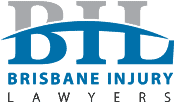What Are The Symptoms Of Whiplash?
What is whiplash and what are the symptoms of whiplash? It is a non-medical term used to describe neck pain which has resulted from a soft tissue injury to the neck. It is a common injury that is caused by a traumatic incident such as a car accident, wherein the neck is extended beyond its typical range of motion causing an abrupt forward-backward movement to the spine. This form of injury can cause significant pain and disability.
So, what are the symptoms of whiplash? What are some ways to treat it? How can you be sure that you are taken care of? There are a lot of questions to be answered for those who are suffering from whiplash. Hopefully, you will find most of the answers you are looking for here.
What Are the Symptoms of Whiplash?
The symptoms of your whiplash will depend on the severity of it. Some people hardly experience any symptoms at all, while some suffer from severe pain and symptoms. Typically, pain and symptoms can arise between 6 and 12 hours after the accident, and can often worsen over more time.
Some of the more common symptoms of whiplash include:
- Pain and stiffness in the neck area
- Swelling and tenderness in the neck and shoulders
- Immobility in the neck area
- Muscle spasms
- Numbness or the feeling of pins and needles in the arms and hands
- Dizziness and weakness
- Headaches
If you experience fatigue, dizziness, or vertigo (feeling as if you are spinning even if you are standing still), or your symptoms begin to worsen, then you should seek medical attention immediately. It is extremely important to be checked by a doctor as you could be experiencing something more serious than whiplash.
What Treatments Can Help With Whiplash?
Whiplash, like other sprains and strains of muscles, will take time to heal. Some treatments that can be effective are:
- Wearing a soft cervical neck brace or collar for comfort and limited movement.
- Do gentle neck exercises to increase mobility and range of motion.
- Take anti-inflammatory medicine to reduce swelling and pain.
- Use an ice pack to reduce inflammation.
- Staying active can reduce healing time, though keeping activities mild and not overdoing it is imperative.
- Massage and physio can also be helpful.
If you have suffered from an accident resulting in whiplash and need help covering your medical expenses, contact us today. You may be entitled to partial or full compensation. We care about your health and safety and will do what we can to help. Call us on 1800 695 299.
